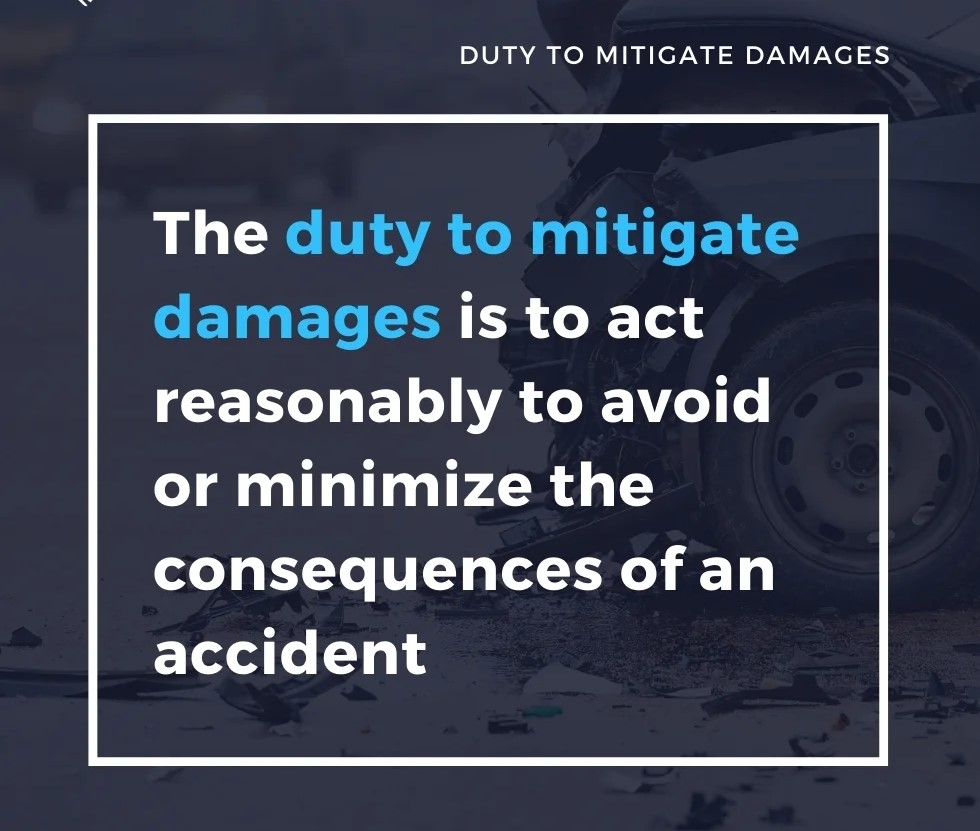
The concept of mitigation is closely related to managing risk and personal responsibility. It is frequently described by the phrases ‘mitigating your losses’ or someone having a ‘duty to mitigate.’ While mitigation is a legal concept, it is rooted in everyday personal responsibility for lessening your losses. Mitigating your losses simply refers to taking reasonable steps after suffering a loss to decrease the impact of that loss. This guards against it getting worse in the future. For example, if you got a cut, you would clean and bandage it instead of bleeding out.
Mitigation through Treatment
In the context of a personal injury claim from a motor vehicle accident, your losses are your pain and suffering from your injuries which form your general damages. If you were in an accident which was caused by another driver’s negligence, in law they are responsible for your injuries. However, you are responsible for reasonably treating your injuries by attending treatments and going to the doctor to provide updates on your recovery. This helps identify ongoing issues for further follow-ups.
Treatments like physiotherapy, chiropractic, and massage therapy help you heal from your injuries and manage your symptoms. By regularly attending treatments you are aiding your recovery and mitigating your losses by minimizing their ongoing effect. This helps prevent further complications from your injuries in the future.
Taking Time to Treat
Some of your injuries may not respond well to treatment or resolve fully despite your best efforts at mitigating. It is important to see your doctor regularly so they can make further recommendations and any referrals for specialists or imaging to see which treatments do work. For the sake of both your recovery and personal injury claim, it is important that you follow through.
While the saying goes that time may heal all wounds, relying on time alone instead of consistent treatment means that you are responsible for any continued suffering, at least in the eyes of the other side’s insurance company. If they can prove a lack of mitigation on your part, they could use this as a partial defense to avoid paying for the full extent of your general damages from the accident.
Effect on Damages
Failing to mitigate your losses and not attending treatments is considered during negotiations when reaching a settlement. If you are still suffering from your injuries and have chronic pain that is resistant to treatment despite consistently attending physiotherapy, consulting specialists, and seeing your doctor, the implication is that your injuries deserve a greater award than someone who also has ongoing pain but stopped treating after a few months. If you have been discharged by your treatment provider but are still experiencing pain or experience a flare up, returning to treatment shows you are fulfilling your duty to mitigate.
If there is a mitigation issue and you did not act reasonably while treating your injuries, your damages will be reduced because you could have avoided the full extent of your loss. The other driver who caused the accident would not be held responsible for your own failure to mitigate, and you would not receive the full damages award you would have otherwise received.
If you have been in an accident, an experienced personal injury lawyer can help guide your recovery to ensure you mitigate your losses and receive maximum compensation for your injuries.

